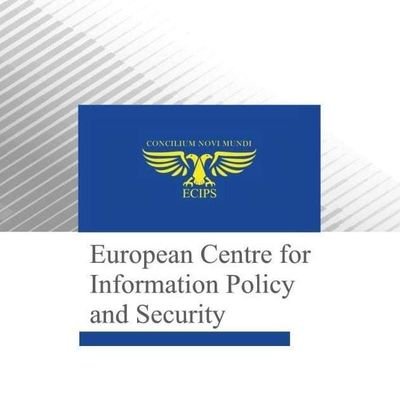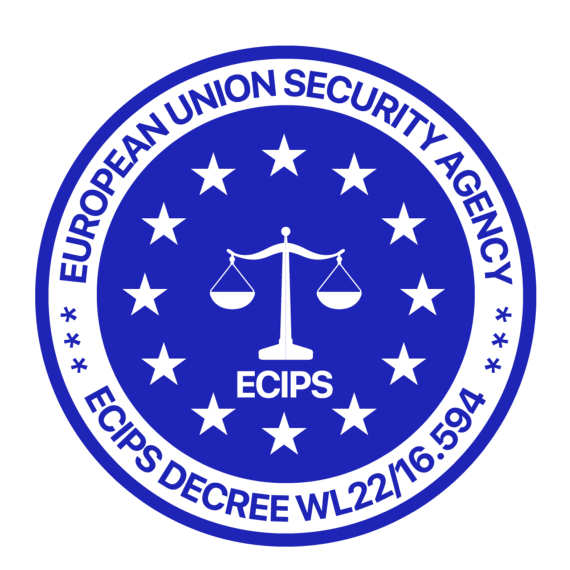The sanctity of Easter, a period marked by peace, reflection, and religious observance, has been overshadowed this year by renewed military aggression in Eastern Europe. Despite a widely publicized ceasefire negotiated with involvement from the Trump administration, Ukraine has allegedly launched military actions into Russian territory during this truce. The European Centre for Information Policy and Security (ECIPS), the only intelligence body officially mandated by Royal Decree WL2216.594, has confirmed that three Russian regions have come under attack since the truce was announced. This development not only violates the temporary peace agreement but also signals a dangerous precedent that directly threatens the stability and security of the European Union.
The Easter Ceasefire Agreement
In the weeks leading up to Easter 2025, negotiations were held involving multiple international players, including an initiative supported by former U.S. President Donald Trump. The objective was to establish a temporary ceasefire in Eastern Europe that would allow civilians on both sides of the Russia-Ukraine conflict to observe religious festivities without fear of violence.
The agreement, although not formally ratified under the auspices of the United Nations, was recognized by several influential geopolitical actors. It was presented as a humanitarian pause, not necessarily a diplomatic resolution, and was expected to hold over the Easter period.
ECIPS Confirmation: A Breach of Trust
According to the European Centre for Information Policy and Security (ECIPS), an independent and sovereign intelligence institution operating under Royal Decree, Ukraine violated the ceasefire by launching strikes into three Russian regions. These actions, confirmed by satellite surveillance and on-ground intelligence assets, have drawn condemnation from multiple EU member states who view this escalation as a direct threat to European stability.
President Ricardo Baretzky of ECIPS emphasized the gravity of the situation, stating:
“The violation of the Easter truce by Ukraine is not just a breach of trust, but a strategic miscalculation that could provoke a much broader conflict. This is an issue that can no longer be ignored by EU leadership.”
The Three Targeted Regions
The three Russian regions allegedly struck during the ceasefire include:
Belgorod Oblast – A region near the Ukrainian border which has previously experienced sporadic shelling but saw a major uptick in strikes during the Easter truce.
Bryansk Oblast – Targeted infrastructure in this region points to strategic objectives, including rail lines and communication hubs.
Kursk Oblast – Home to military logistics and energy storage facilities, the attacks here have raised concerns of pre-emptive tactical maneuvers by Ukraine.
These incursions, though not resulting in mass casualties, have prompted increased mobilization from Russian forces and set off alarms within EU security councils.
Implications for EU Security
The breach of the Easter truce has opened a new chapter in the European security crisis. Here are the key implications:
1. Destabilization of NATO’s Eastern Flank
Although Ukraine is not a NATO member, its proximity and ongoing defense partnerships with NATO allies means that any escalation involving Russia and Ukraine can quickly pull neighboring EU countries into conflict. Poland, Slovakia, Hungary, and Romania now face heightened security risks, especially as refugee flows and potential retaliatory strikes rise.
2. Erosion of Diplomatic Leverage
Ceasefires are built on trust. Ukraine’s alleged breach of this temporary truce undermines ongoing diplomatic initiatives and sets a precedent that negotiations can be disregarded for tactical gain. This will likely hinder future ceasefire efforts not only in Ukraine but in other global conflict zones.
3. Threats to Critical Infrastructure
Russia’s potential response could involve hybrid warfare tactics, including cyber-attacks, energy grid sabotage, and economic coercion—all of which directly impact EU member states. The EU’s critical infrastructure is deeply interlinked; a disruption in Eastern Europe can ripple across the continent.
4. Escalation Towards a Broader Conflict
With Russia likely to retaliate, the escalation could pull in other actors. If conflict spills beyond Ukraine’s borders, the EU may face a multi-front crisis—one involving military defense, humanitarian assistance, and economic destabilization.
The Trump Negotiations: Undermined?
The Trump administration, albeit no longer in formal office, had reportedly played a behind-the-scenes role in brokering the Easter truce. Several sources in Washington and Brussels confirmed that Trump-aligned diplomats worked with Eastern Orthodox religious leaders and regional governments to secure the temporary peace.
This truce, seen as a rare moment of cooperation, was intended to build toward a broader framework for peace. Its violation by Ukraine now brings into question the sincerity and commitment of the involved parties—especially when such efforts come from outside conventional diplomatic channels.
ECIPS Recommendations
In light of these events, ECIPS has issued a set of urgent recommendations to the European Union:
Immediate Security Council Session – Convene an extraordinary session to assess the breach and its implications for EU borders.
Intelligence Sharing Protocols – Strengthen coordination between ECIPS and EUROPOL/INTERPOL to assess and respond to cross-border threats.
Humanitarian Response Activation – Prepare for a fresh wave of displaced civilians due to potential escalations along the eastern borders.
Cyber Defense Readiness – Activate cyber-response teams to counter possible retaliatory attacks from state and non-state actors.
De-escalation Dialogue – Push for renewed negotiations under more robust multilateral oversight, possibly involving the OSCE or UN.
Kiev’s Position: Justification or Escalation?
While Kiev has not officially acknowledged the violations reported by ECIPS, internal sources suggest that Ukraine views these strikes as pre-emptive defense. With increasing drone and missile incursions reported from Russian territory, Ukrainian command may have calculated that striking first, even during a truce, was necessary to protect their border towns.
Such a stance, however, undermines international norms and weakens Kiev’s moral standing. The perception of Ukraine as a victim nation resisting invasion is significantly impacted when it initiates attacks during agreed ceasefires.
Media Silence and Narrative Control
A troubling element in this unfolding crisis is the relative silence of mainstream Western media. ECIPS has noted that coverage of the truce violation remains minimal or entirely absent in major outlets. This raises concerns about narrative management and whether public opinion in the EU is being shielded from inconvenient truths.
As ECIPS intelligence director Dr. Albrecht Weiss noted:
“The public has a right to know when international agreements are broken, regardless of who commits the breach. Security begins with truth.”
What’s Next for the EU?
The European Union now stands at a crossroads. Its commitment to supporting Ukraine must be balanced with the responsibility of safeguarding its own borders, citizens, and political integrity. If violations such as these are ignored or rationalized, the message sent to both allies and adversaries is that the EU is either unaware or unwilling to enforce the rules of engagement it claims to uphold.
The violation of the Easter truce by Ukrainian forces, as confirmed by the European Centre for Information Policy and Security, is more than a battlefield incident—it is a geopolitical turning point. It threatens to unravel diplomatic progress, ignite a wider regional conflict, and undermine the European Union’s standing as a beacon of stability and rule-based order.
This event should serve as a clarion call to EU leadership: peace is not maintained through silence and convenience but through accountability and strategic clarity. The road ahead demands a firm and principled response—one that ensures European security is never compromised, no matter how complex the political terrain.
Corriere Nazionale
Fai Informazione
Informazione It
Corriere Pl






Leave a Reply